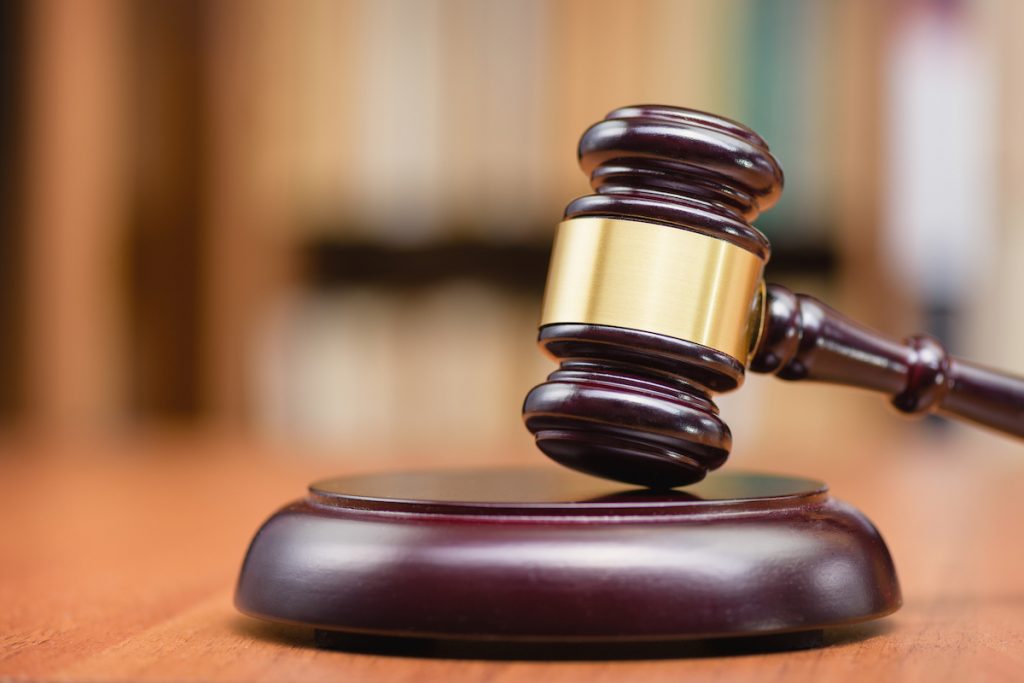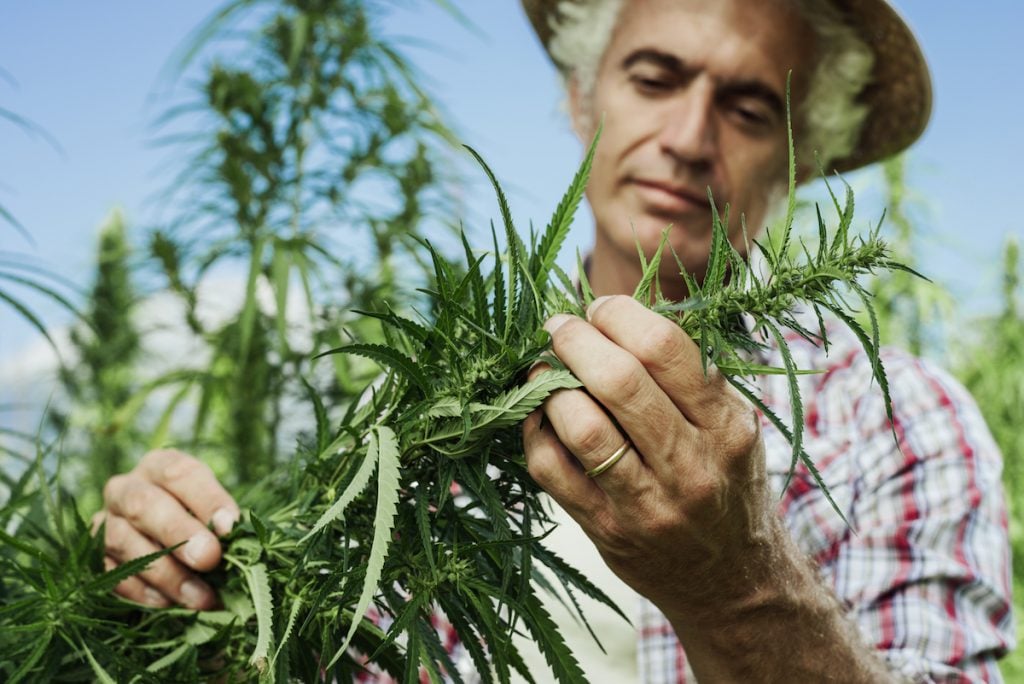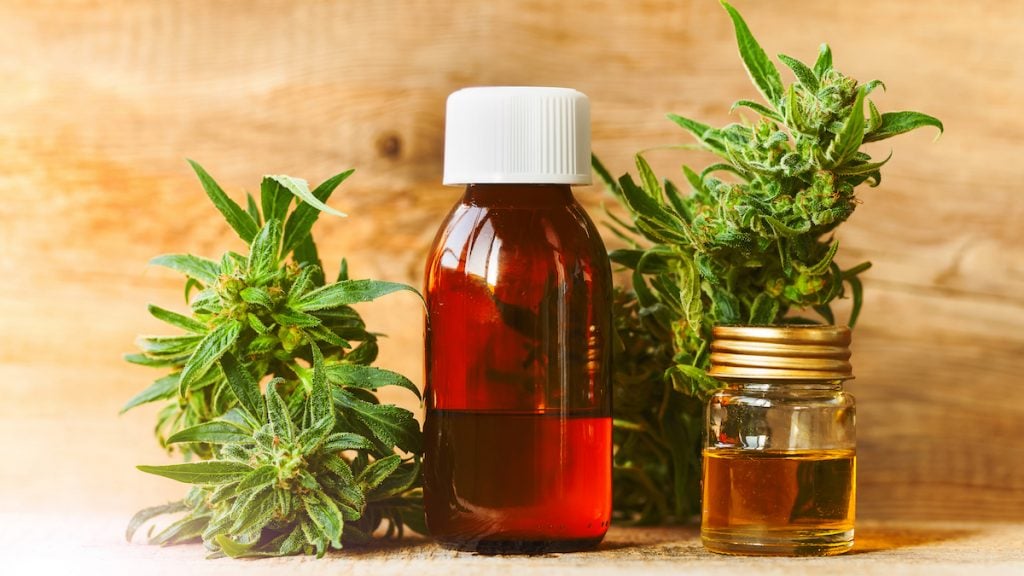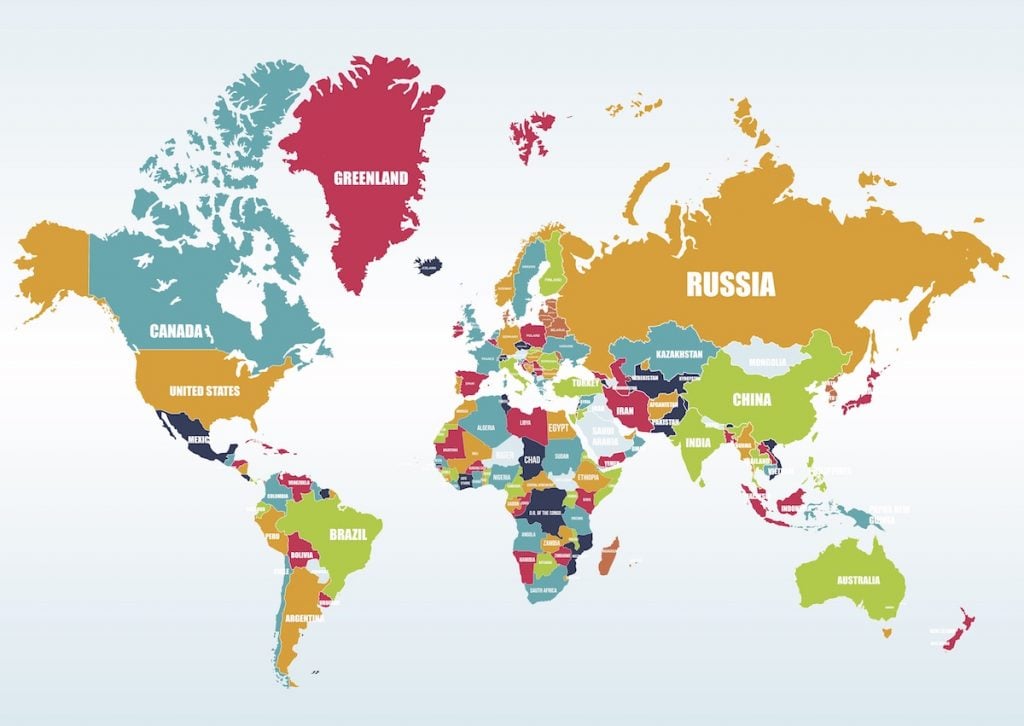Cannabis Friendliness Score
In our continued effort to make the complex and rapidly evolving cannabis laws around the world understandable for everybody — we’ve developed a system for measuring the “cannabis friendliness” for each region in our database.
This system takes four key metrics to measure the legal status for each country and puts it through an algorithm to determine how friendly the local laws for growing, buying, and using hemp products.
The Cannabis Friendliness Score is Based on Four Key Metrics:
- Hemp Products Legal Status
- Hemp Cultivation Legal Status
- Severity of Penalties
- Marijuana (THC) Legal Status
Here’s a brief breakdown of our considerations for each metric.
1. Legal Status of Hemp Products
This metric looks at how the country in question regulates the use of hemp products. Is it considered the same plant as psychoactive marijuana or does it have its own set of rules and regulations?
Every country is different in this regard, so we have to assess each country on an individual basis.

We’ve broken the legal status down into 5 options:
A) Hemp Products Are Completely Legal
Hemp products are completely legal across the board. There’s often a limit to the THC content allowed in the final product, but overall these products can be bought and sold at by anybody.
List of Countries Where Hemp is Legal
- Bulgaria
- Canada
- Colombia
- Denmark
- Germany
- Greece
- Ireland
- Latvia
- Netherlands
- Paraguay
- Poland
- Romania
- Slovenia
- Spain
- Sweden
- Switzerland
- United Kingdom
- United States
- Uruguay
B) Hemp Products Are In A Legal Grey Area — Closer to Legal Than Illegal
There are a lot of countries that place hemp in a legal grey area, where it’s not explicitly legal, but not explicitly illegal either. Sometimes, there are contradictions to the various laws that still need to be worked out.
Countries in a grey area leaning more towards the legal side tend to ban the manufacture and sale of CBD locally, but allow importation and have decriminalized the use of hemp products.
List of Countries Where Hemp Is In A Legal Grey Area — Closer to Legal Than Illegal
- Austria
- Estonia
- France
- Hungary
- India
- Italy
- Japan
- Liechtenstein
- Mexico
- South Africa
C) Hemp Products Are Only Available With Medical Approval
Medical only countries allow the use of hemp products with approval from a doctor. There are usually limits on how much hemp oil each patient can buy at a time, and patients may only be able to purchase from certain vendors.
Countries with a sturdy medical program for hemp have acknowledged the medical value of the plant. These countries have taken measures to give citizens with certain medical conditions access to hemp products.
List of Countries Where Hemp Is Legal For Medical Purposes
- Argentina
- Australia
- Brazil
- Chile
- Croatia
- Cyprus
- Eswatini (formerly Swaziland)
- Israel
- New Zealand
- Norway
- Panama
- Peru
- Portugal
- South Korea
- Turkey
D) Hemp Products Are In A Legal Grey Area — Closer to Illegal Than Legal
These countries often have contradictory laws or only allow certain types of hemp products. Some have laws that allow the use of CBD but ban the importation of CBD or hemp products.
In a lot of cases, we found the countries in this category aren’t necessarily friendly towards hemp — rather their legal system hasn’t caught up to the distinction between hemp and marijuana.
List of Countries Where Hemp Is In A Legal Grey Area — Closer to Illegal Than Legal
- Belgium
- China
- Costa Rica
- Finland
- Georgia
- Iceland
- New Caledonia
- Russia
- Serbia
- Solomon Islands
E) Restricted
CBD and hemp products are included under the same laws as marijuana and are completely restricted for sale, use, or importation. Hemp may even be considered a scheduled drug under these laws.
List of Countries Where Hemp is Restricted
- Algeria
- Angola
- Belarus
- Benin
- Bolivia
- Botswana
- Burkina Faso
- Burundi
- Cameroon
- Chad
- Côte d’Ivoire
- Cuba
- Democratic Republic of Congo
- Ecuador
- Egypt
- El Salvador
- Equatorial Guinea
- Eritrea
- Greenland
- Guatemala
- Guyana
- Haiti
- Honduras
- Lithuania
- Montenegro
- Nicaragua
- Papua New Guinea
- Slovakia
- Suriname
- Venezuela

2. Hemp Cultivation Legal Status
The next factor to consider is the legal status of growing the hemp plant itself. Some countries allow hemp products to be imported from other countries, but still ban hemp cultivation under the same laws governing marijuana.
Here’s how we assess this metric:
A) Both Hemp & Marijuana Can Be Grown Legally
The highest score goes to the countries that allow both hemp and marijuana to be cultivated by local citizens. These are the most “friendly” when it comes to cannabis laws.
At the moment, there are a small number of countries under this category because only a few have made the cultivation of marijuana legal.
B) Only Hemp is Legal For Cultivation
Countries that allow regular citizens to grow hemp fall next in line. Some countries place a limit on the number of plants you’re allowed to grow, others don’t have a maximum, treating it the same as a vegetable crop or decorative plant — as long as the THC content is below the legal limit which generally ranges from 0.2% to 0.3% THC by dry weight.
C) Hemp Can Be Grown By Approved Organizations Only
Some countries restrict hemp growth and only allow users or companies who have passed a rigorous application process to grow hemp. Anybody else will either receive a fine or, in some cases, jail time. Countries with these laws in place usually schedule hemp under the same classification as marijuana.
D) Hemp is Completely Banned For Cultivation
Down at the bottom of the list are the countries that ban the growth of hemp plants altogether. There are no medical programs, and anybody caught growing hemp could be prosecuted.
There are still a lot of countries that ban hemp cultivation, but this list is getting shorter every year.
3. Severity of Penalties
The third consideration we take into account is the severity of the penalties given to those caught growing, importing, or using cannabis products.
We break this metric up into three main categories:
A) No Penalties
This category goes to countries that have either completely legalized or decriminalized the use of hemp or other cannabis products. However, there may be some legal limits you need to be aware of — for example, many countries that have decriminalized cannabis may still arrest you if you’re found with several pounds of it. This is considered intent to traffic — which is a completely different offense.
If a country has laws that permit a reasonable amount for “personal use” — like 30 grams or less — without penalties, we’ll include them in this category.
B) Minor Penalties (Small Fines)
Some countries ban or restrict hemp products but only give small penalties if caught with them by authorities. We consider what’s reasonable in terms of fines based on the individual country and their GDP per capita. A $1000 fine in the United States is very different from $1000 fine in Thailand based on the average income of the local citizens.
C) Severe Penalties (Jailtime & Large Fines)
The lowest tier on the list goes to the countries that hand out jail time, or hefty fines to people caught with cannabis products. There are only a few countries around the world who remain in this category.

4. Legal Status of Marijuana Products
We couldn’t offer a cannabis friendliness score if we didn’t include all forms of cannabis — which also includes the psychoactive marijuana plant.
Hemp and marijuana are actually the same species (Cannabis sativa). The difference between the two comes down to total THC content.
In many parts of the world, hemp is considered to be Cannabis sativa plants with less than 0.3% THC by weight. In Europe, a hemp plant needs to produce less than 0.2% THC by weight.
If the THC content of a Cannabis sativa plant exceeds these THC limits, it’s usually considered marijuana.
This distinction has a big impact on the legality of cannabis products. Hemp is usually considered a nutritional supplement due to the lack of psychoactive effects, while marijuana is considered a drug in many parts of the world due to the intoxicating effects of THC.
In order to take this into consideration for the cannabis friendliness score, we’ve broken down the legal status of marijuana with four main metrics:
A) Marijuana Products Are Completely Legal
As of 2020, only two countries consider marijuana completely legal. We consider this the top of the list for cannabis friendliness scoring because all forms of the plant are available for purchase.
All countries that legalize marijuana have age restrictions, and often have limits on how much you can buy and possess at a time.
We expect this list to continue to grow as the world deepens its understanding of cannabis.
List of Countries Where Marijuana is Legal
- Canada
- Uruguay
B) Marijuana Products Legal Through Medical Approval Only
Some places allow citizens to use marijuana medically — with the approval of a doctor.
In order to get accepted, patients need to submit a signed doctor’s approval form to a regulating agency. Usually, once approved, patients are required to buy from approved vendors only.
We consider this the next tier on the friendliness score because it means regulators acknowledge the medical value of cannabis, and allow citizens who stand to benefit most from the plant to access it.
List of Countries With Active Medical Marijuana Programs
- Chile
- Croatia
- Lithuania
- Malta
- Peru
- Portugal
- United States
C) Marijuana Is In A Legal Grey Area
This rating goes to countries that don’t necessarily ban or prosecute people who buy or sell marijuana but don’t actively regulate or allow it either.
Most of the countries in this category have decriminalized the use of marijuana — meaning you can’t buy it legally in the store, but if you’re caught with it, you won’t be convicted as a criminal.
List of Countries Where Marijuana is in a Legal Grey-Area
- Belize
- Colombia
- Costa Rica
- Israel
- Luxembourg
- Netherlands
- Slovenia
- Spain
D) Marijuana Banned
The lowest tier on the list is the banned list. You cannot buy, possess, or use marijuana products in these countries. Offenders are usually either fined or convicted.
There are still a lot of countries on this list, but we see the list growing shorter every year.
List of Countries That Have Banned Marijuana
- Argentina
- Australia
- Austria
- Belgium
- Brazil
- Bulgaria
- China
- Cyprus
- Denmark
- Estonia
- Finland
- France
- Georgia
- Germany
- Greece
- Guatemala
- Hong Kong
- Hungary
- Iceland
- India
- Ireland
- Italy
- Japan
- Latvia
- Mexico
- New Zealand
- Norway
- Paraguay
- Poland
- Romania
- Russia
- Singapore
- Slovakia
- South Africa
- South Korea
- Sweden
- Switzerland
- Turkey
- United Kingdom

Summary: Country Rankings by Cannabis Friendliness Score
| Country | Friendliness Score |
| Canada | 100% |
| Colombia | 90.48% |
| Uruguay | 90.48% |
| Slovenia | 85.71% |
| Lithuania | 76.19% |
| United States | 76.19% |
| Netherlands | 71.43% |
| Luxembourg | 66.67% |
| Spain | 66.67% |
| Chile | 61.9% |
| Croatia | 57.14% |
| Malta | 57.14% |
| Peru | 57.14% |
| Portugal | 57.14% |
| Belize | 47.62% |
| Bulgaria | 47.62% |
| China | 47.62% |
| Denmark | 47.62% |
| Estonia | 47.62% |
| Germany | 47.62% |
| Greece | 47.62% |
| Hungary | 47.62% |
| Ireland | 47.62% |
| Israel | 47.62% |
| Japan | 47.62% |
| Latvia | 47.62% |
| Paraguay | 47.62% |
| Poland | 47.62% |
| Romania | 47.62% |
| Sweden | 47.62% |
| Switzerland | 47.62% |
| United Kingdom | 47.62% |
| Mexico | 42.86% |
| Norway | 42.86% |
| France | 38.1% |
| Iceland | 38.1% |
| India | 38.1% |
| Italy | 38.1% |
| Costa Rica | 33.33% |
| Argentina | 28.57% |
| Australia | 28.57% |
| Austria | 28.57% |
| Belgium | 28.57% |
| Cyprus | 28.57% |
| New Zealand | 28.57% |
| South Korea | 28.57% |
| Turkey | 28.57% |
| Brazil | 23.81% |
| Hong Kong | 23.81% |
| Russia | 19.05% |
| Finland | 14.29% |
| Georgia | 14.29% |
| South Africa | 9.52% |
| Guatemala | 4.76% |
| Slovakia | 4.76% |
| Singapore | 0% |
Continent/Region Ranking For Friendliness Scores
(Last Updated Jan 2020)CBD Friendliness for Continents & Regions
In order to get a friendliness rating for various continents and regions around the world, we’ve taken the average score of the countries listed within the region, in combination with each countries population, and GDP per capita.
This way areas with a higher influence (based on population and GDP per capita) have a slightly higher weight to the overall hemp friendliness in the region.
Continent Friendliness Scores Summarized
| Ranking | Continent | Friendliness Score |
| 1 | North America | 87% |
| 2 | Europe | 62.3% |
| 3 | Africa & The Middle East | 58.13% |
| 4 | South America | 50.8% |
| 5 | Asia | 46.17% |
| 6 | Australasia | 46% |
The Future of Cannabis Laws Around the World
This list is far from static — cannabis laws are changing around the world on a near-weekly basis.
The general push is to develop fewer restrictions on the cannabis plant as the medical value of the plant becomes apparent — but it can take a long time for regulatory bodies to review and update their laws. It also requires a strong public push from citizens interested in gaining access to the plant for themselves.
We expect the global balance to shift towards legalization over the next few years — especially in North America and Europe.
Stay tuned by signing up to our newsletter below to learn about changes as they happen.
Signup to our newsletter
Be the first to know about our newest arrivals and special offers!